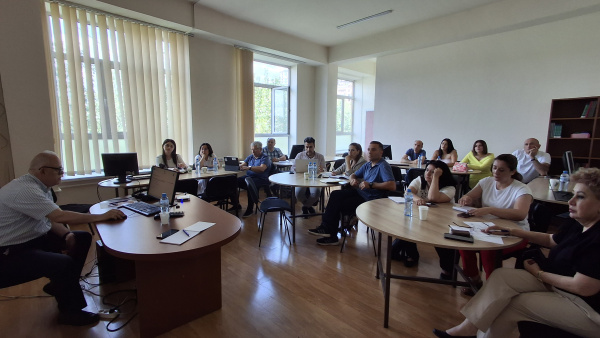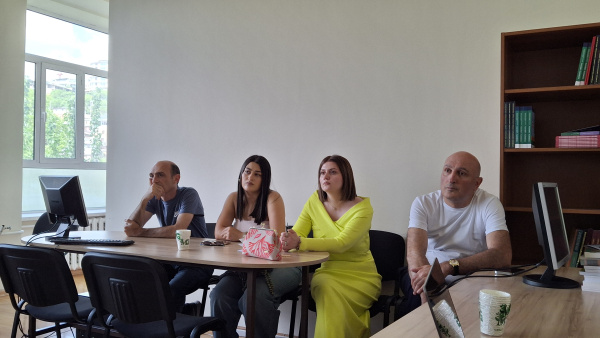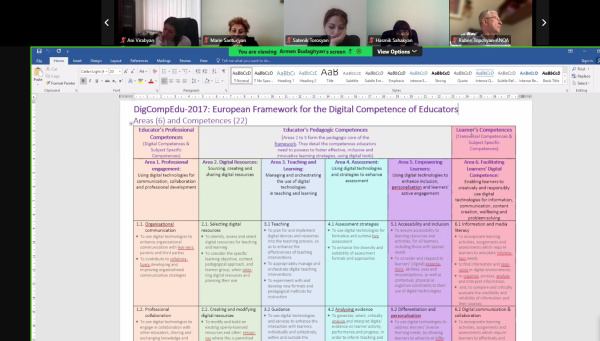
Creating a digital competence framework for the Armenian higher education system has become an urgent necessity. This need is driven by several factors: rapid technological advancements, emerging demands in the labor market, the digitization of the educational environment, and the existing imbalance in digital literacy levels between students and faculty. This is exactly the goal of the Erasmus+ program, particularly the activities under WP1 of the “eCAMPUS” project. The project aims to develop a national framework for digital competencies, defining its structure, key domains, and proficiency levels in alignment with European standards and the specific needs of Armenia’s higher education sector. As part of WP1 of the Erasmus+ eCAMPUS project, several meetings including online sessions were held with the participation of representatives from Armenian universities which are members of the project consortium.

The meetings aimed to discuss the European digital competence frameworks, their core components, assessment levels, and their potential applicability within Armenian universities. University representatives shared their visions on digital competencies, grounded in key European documents related to the field, while emphasizing their compatibility with approaches currently used in the European education system. Special attention was given to the need for a research-based approach to developing digital competencies, ensuring a more comprehensive and realistic framework.

The participants unanimously agreed that the future national framework should be based on the European DigComp Framework and its core principles, while also incorporating updates made in response to the development of new digital tools. Fundamental competencies related to Artificial Intelligence and Cybersecurity must not be sidelined in the national framework. The participants also discussed the results of a study conducted across eight Armenian universities (including four consortium members and four non-members), which assessed the digital competencies of teachers and students. The results will inform the development of the national framework and guide the design and implementation of training programs for university faculty. One of the meetings was organized for the representatives from European partner universities, who shared valuable insights. They particularly highlighted the strategic importance of integrating Artificial Intelligence as an inseparable part of the digital competency framework.

As a result of these discussions, a preliminary consensus was reached on the fundamental principles regarding the structure, components, and direction that the future digital competency framework for the Armenian higher education system should follow.

